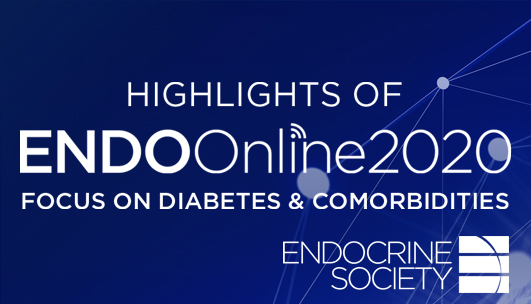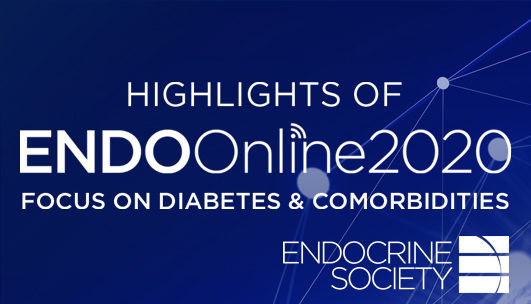

Time in Range and Evaluating CGM
In this medfyle
Expert commentary by Anthony McCall, MD, PhD, FACP
This Medfyle was published more than two years ago. More recent Medfyle on this topic may now be available.
Acknowledgements
This is a highlights summary of an oral session given at the ENDO Online 2020 and presented by:
Steven Edelman, MD
University of California San Diego, CA, USA
Rayhan A. Lal, MD
Stanford University School of Medicine, Stanford, California, USA
Jeremy H. Pettus, MD
University of California San Diego, CA, USA
The content is produced by Infomedica, the official reporting partner of ENDO Online 2020. The summary text was drafted by Patrick Moore, PhD, and reviewed by Marco Gallo, MD, an independent external expert, and approved by Raghu Mirmira, MD, PhD, the scientific editor of the program.
The presenting authors of the original session had no part in the creation of this conference highlights summary.
In addition, an expert commentary on the topic has been provided by:
Anthony L. McCall, MD, PhD, FACP
Professor of Endocrinology University of Virginia School of Medicine (Emeritus), Charlottesville, Virginia
Professor, Division of Nutritional Sciences Cornell University, Ithaca, New York
About the Expert

Anthony L. McCall, MD, PhD, FACP
Professor of Endocrinology University of Virginia School of Medicine (Emeritus), Charlottesville, Virginia
Professor, Division of Nutritional Sciences Cornell University, Ithaca, New York
Dr. McCall received his MD from the Medical College of Wisconsin and his PhD in Neural & Endocrine Regulation from the Massachusetts Institute of Technology. His clinical training was at the Boston University Medical Center where he did his residency in Internal Medicine, his Endocrinology fellowship and was Chief Medical Resident.
He has extensively researched how diabetes and hypoglycemia affect the central nervous system. He has worked with UVA colleagues on a computer-controlled insulin infusion for insulin pumps as an “artificial pancreas” therapy for type 1 diabetes. He has had NIH funded projects for basic scientific work on understanding and reversing defective glucagon counterregulation in type 1 diabetes and for computer algorithms for glycemic control of inpatients undergoing cardiovascular surgery, for early markers of islet dysfunction in people at risk for type 1 diabetes, for a lifestyle type 2 diabetes clinical study using low glycemic meals, active lifestyle and monitoring to improve glycemic control and recently on a study of discrepancies in rural areas in screening for diabetes complications. At Cornell he works as a mentor to junior faculty and doctoral students and teaches courses on nutrition and disease and also writing grants.
His clinical work has focused on diabetes complications and their prevention. Dr. Angela Taylor and he have been co-directors of the Cardiometabolic Risk Network. He has headed a clinical care and research group working on inpatient diabetes control in the ICU.
References
1. KovatchevB, Cobelli C. Glucose Variability: Timing, risk analysis, and relationship to hypoglycemia in diabetes. Diabetes Care. 2016;39(4):502-10.
2. Battelino T, Danne T, Bergenstal RM, et al. Clinical targets for continuous glucose monitoring data interpretation: Recommendations from the International Consensus on Time in Range. Diabetes Care 2019;42:1593-1603.




